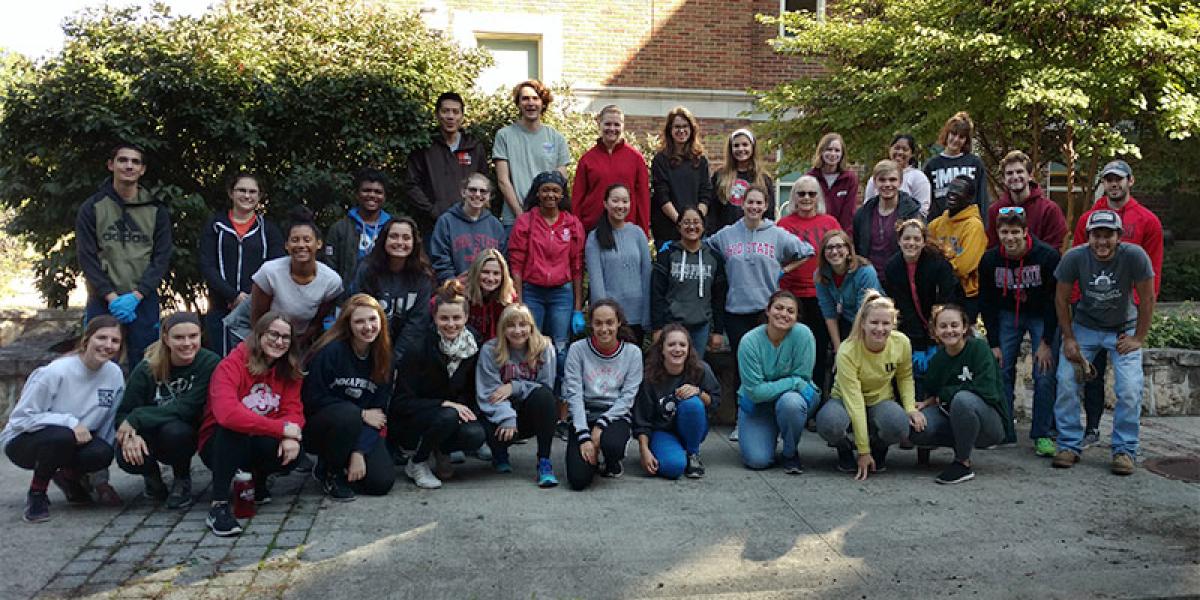As most students put on their scarlet and gray to cheer for the Buckeyes against Penn State last month, another group of scholars spent their time supporting a different cause.
On Saturday, September 29, more than 50 volunteers joined FOD’s Environmental Health and Safety group and Center for Life Science Education staff to clean and maintain the rain gardens behind Jennings Hall. They dug in, weeding, trimming perennials and pruning trees.
“We want to thank the students from Alpha Phi Omega, Alpha Tau Zeta Farmhouse, Biological Science Scholars, Gamma Phi Beta and all the volunteers for helping with this important work,” said Kent Halloran, Environmental Health and Safety stormwater engineer. “They helped beautify and maintain an important natural stormwater facility and helped the university meet one of its stormwater permit requirements.”
The work helps support The Ohio State University’s sustainability goals with a focus on resource stewardship.
The rain gardens were among the first developed for the Columbus campus, after the Botany and Zoology Building greenhouses were demolished in 1995. Rain gardens help filter and slow the runoff from storm events and are a popular form of “green” infrastructure that has gained in popularity as communities throughout the nation address continued urban growth.
One advantage of green infrastructure is its lower maintenance requirements when compared to other forms of treatment and detention. Since 2013, the gardens have been maintained by students and student organizations interested in the environment, sustainability and volunteerism.
The students and their efforts helped the university satisfy its “Public Involvement and Participation” Best Management Practice (BMP) required in the university’s National Pollution Discharge Elimination System (NPDES) Municipal Separate Storm Sewer System (MS4) permit.
Next on their list of priorities is mulching the rain garden plants, weeding and possibly transplanting plants to further improve the rain gardens’ performance and help prevent the growth of Invasive plants. Students are scheduled to go back to work once they return for the spring 2019 semester.
